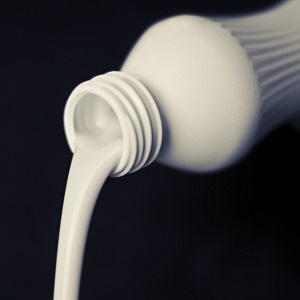
New South African food legislation coming into effect in 2016 will see a reclassification of local dairy products and the introduction of a new medium fat class.
New technology and innovation
Regulation 260 (R260), announced by the Department of Agriculture, Forestry and Fisheries (DAFF), repeals regulation 2581 and aims to align local dairy products with international standards and codes of practice that contribute to the safety, quality and fairness of the international food trade. The R260 legislation was drafted by the Department in close consultation with the dairy industry and other role players.
Read: Eat dairy, lose weight
Jompie Burger, Managing Director of the Dairy Standards Agency (a non-profit organisation promoting the improvement and safety of the composition of dairy products) says that the “regulation of product labelling is designed to protect consumers, while ensuring fair competition within the industry. The old legislation dates back to 1987 and had to be revised to account for new technology and innovation, as well as accommodate changes in international health regulations.”
Five different class designations
One of the implications of R260 is that dairy products will now be categorised according to five different class designations: high fat, full fat, medium fat, low fat and fat free (skimmed). For example, low-fat milk was previously classified as having a fat content of between 1.5% and 2.5%. Under the new legislation, milk with a fat content of between 1.5% and 3.3% will however be classified as “medium fat”. Another example is 2% milk that will no longer be classified as “low fat”.
Read: Cows yield low-fat milk
The new R260 fat classification will be applied across all dairy products, including yoghurt and drinking yoghurt, as well as cheeses. The legislation will in essence lead to the reclassification of the majority of former “low fat” products to “medium fat”.
Apart from the technical updates, the R260 legislation will also comprise stricter labelling requirements for dairy and imitation dairy products: an ingredients list, “best by/use by/sell by” dates, and batch code indicators now become compulsory information that must be displayed on containers of dairy or imitation dairy products. The changes bring R260 in line with the Labelling and Advertising Regulations under the Foodstuffs, Cosmetics and Disinfectants Act of 1972 that governs the labelling and advertising of foodstuffs in South Africa.
Read more:
Low-fat dairy lowers stroke risk
Drinking milk has long-term benefits
[Parmalat (PSA) is one of the major players in the South African dairy industry and has been active in the South African dairy industry since 1998. PSA’s brand focus is on quality and the annual national and international awards its products receive are testament to this. Parmalat SA (Pty) Ltd and Parmalat Africa (including South Africa, Zambia, Botswana, Swaziland and Mozambique) form part of Lactalis, a French international dairy company.]
Visit www.parmalat.co.za for more information.
Distributed by:
Janine Pedersen, Account manager, Atmosphere Communications (021 461 2117) janinep@atmosphere.co.za




 Publications
Publications
 Partners
Partners










